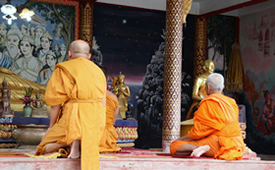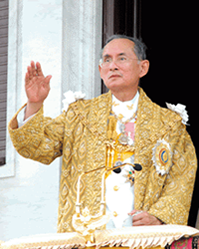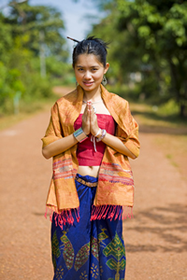Thailand Culture and the Customs Some Tips on What to Expect
Being aware of Thailand culture can help a tourist experience the country better. While urban areas such as Bangkok and Pattaya may seem like any other city in the world, with widespread western influences, it is important to remember that there are some things that will not be appreciated or tolerated by the Thailand people.

Although Thailand has a constitutional monarchy, whereby the King of Thailand is the head of the state within the parameters defined in the constitution, unlike other constitutional monarchies in the world, the respect and reverence with which the people treat the King and the Royal family is unmatched. Besides this, there are influences on Thailand culture that stem from the practice of Buddhism. Here is a guide to a few dos and don’ts that will help you appreciate the culture of Thailand and blend in better as a tourist.
Respecting the King and the Royal Family

The present King as well as other members of the Royal family are very dear to the Thai people. You will find photos of the King put up in most shops and establishments. It is best to accept this as a unique aspect of Thailand culture and avoid commenting or saying anything rude about the King or the Royal family. Another point to keep in mind is to stand in attention as a sign of respect when the King’s anthem or the national anthem is being played. Many cities play the anthem twice a day, in the morning and evening, and you will find the entire street coming to a halt. To prevent showing disrespect even unintentionally, it is best to respect the customs of Thai culture and follow suit when you notice the locals standing still.
Respecting Buddhism
Buddhism is the principal Thailand Religion and it is important to respect certain norms or guidelines that it lays down. For instance, images of the Buddha should be treated with utmost respect as they are considered sacred. Furthermore, while visiting temples and other religious places, Thailand culture demands that you dress conservatively without exposing too much skin (no sleeveless or strappy tops and no shorts or skirts that do not cover the knees). Similarly, monks are treated with great respect, and it is quite common to find locals offering their seats on trains and buses to monks. If you want to blend in, you could consider doing the same.
One of the common Thailand customs is to greet people using the Wai, which is a mark of respect, by pressing your hands together at the chest level and bending forward slightly. This is the way that you will find young Thai people greeting their elders or even lay persons greeting a monk. As a tourist, it is best to follow this practice of the Thailand culture and use the Wai instead of the western handshake to return a greeting by a Thai, whether it is at your hotel or on a tour. Similarly, it is advisable to refrain from talking loudly as it is considered rude. This is a particularly important tip to keep in mind if you need to interact with Thailand Government officials to get a visa extension or while answering questions of airport immigration authorities.

While travelling to a new country, it is always best to know what the social norms are so that you can adapt to make sure your vacation passes without negative experiences. Understanding what is expected of you as per Thailand culture will help you, wherever you plan to go in the country. No doubt Thailand has western influences and a multicultural society, but the country also has ancient traditions that have not been wiped away by modernisation. This is what makes it unique.